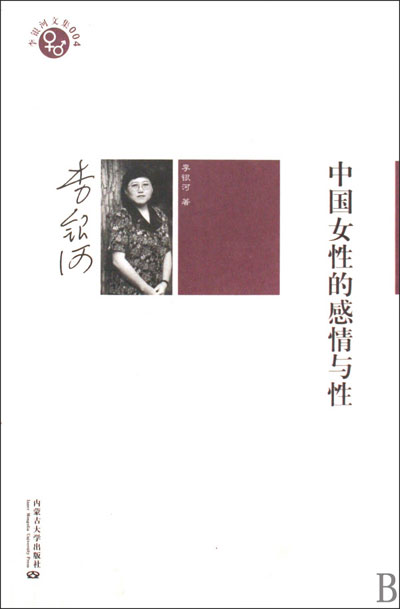Crossing the gender divide
By Yang Wanli (China Daily) Updated: 2014-12-24 08:17
 |
| One of Lin Yinhe's best-known books, The Subculture of Homosexuality. CHINA DAILY |
Greater public acceptance
The number of Chinese officially classified as lesbian, gay, bisexual or transgender, or LGBT, remains unclear because there are no definitive recent statistics. In 2006, the National Health and Family Planning Commission estimated that there were 5 million to 10 million homosexuals in the Chinese mainland, aged between 15 and 65. However, having conducted her own research for more than a decade, Li estimates that the real figure is between 36 and 48 million.
A survey conducted by the US Public Religion Research Institute in 2011 showed that 11 percent of US respondents said they had transgender friends or family members, but the number of transgender people in China, which has a population of 1.3 billion, is not known.
"We've seen greater public acceptance of lesbians, gays, and bisexuals in the past three to five years, but there is still a lack of knowledge about transgender people," Geng Le, director of Danlan, a website for gay people, said.
"Li has opened a door for those with a lack of knowledge, and has given courage to transgender people, who are under more pressure than the other three groups because of the visible collision between their physical appearance, their dress, and their general behavior. Some inadvertently bring more pressure on themselves by opting for medical intervention to change their gender," he said.
Discrimination is one of the biggest problems faced by transgender people, especially in terms of employment. "In some occupations, such as teaching, to be a 'T' is the end of one's professional career. I know some transgender people who work as teachers, but they had changed their gender before they started in the profession. Negative public attitudes mean it simply isn't possible for someone to change their gender and still work as a teacher," Chen said.
In 2011, the US National Center for Transgender Equality and the National Gay and Lesbian Task Force released a report that confirmed the pervasive, severe discrimination faced by transgender people. Having surveyed nearly 6,500 transgender people, the researchers discovered that they experienced high levels of discrimination in employment, housing, healthcare, education, the legal system, and even from their families.
Chen works for Aibai, a nonprofit organization that offers support to the LGBT community, provides assistance, works to change public attitudes, and teaches skills to help transgender people cope with workplace discrimination, such as emphasizing ability rather than gender difference.
Chen said her most important task is to help people like her build a positive mental attitude and to be confident about their choice of sexuality and gender.
In addition to introducing new members to friends within the community, Aibai also encourages them to participate in a wide range of social activities. "For example, going to the swimming pool is one of the most challenging things for transgender people," Chen said.
- Govt encourages people to work 4.5 days a week
- Action to be taken as HIV cases among students rise
- Debate grows over reproductive rights
- Country's first bishop ordained in 3 years
- China builds Tibetan Buddhism academy in Chengdu
- Authorities require reporting of HIV infections at schools
- Typhoon Soudelor kills 14 in East China
- Police crack down on overseas gambling site
- Debate over death penalty for child traffickers goes on
- Beijing to tighten mail security for war anniversary







